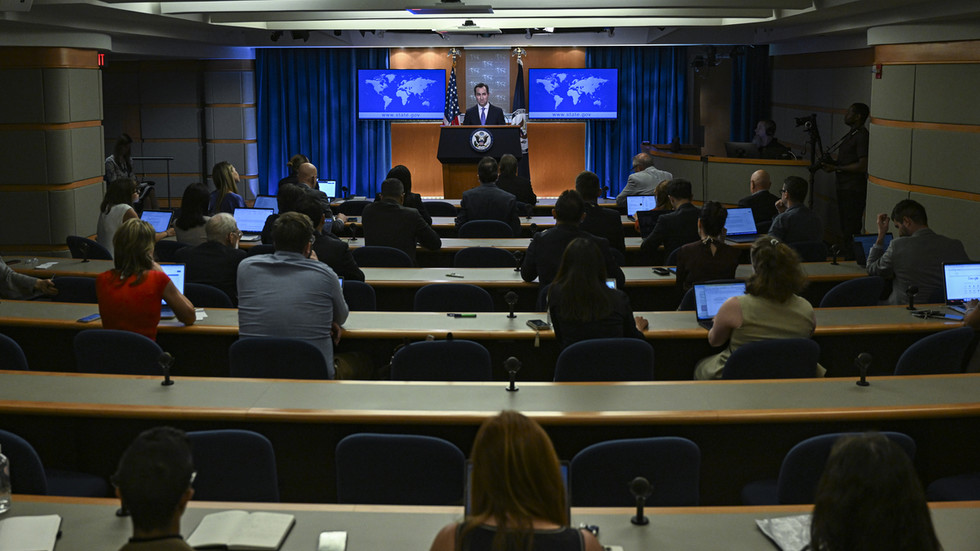
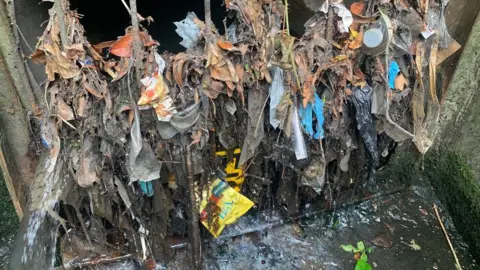 CURB
CURB
The outfall at Marnham Field is frequently filled with sewage
Raw sewage is being dumped into London's rivers from at least 100 homes, a charity has warned.
Thames Water's response to an Environmental Information Request (EIR) from Friends of the River Crane Environment (Force) showed seven blocks of flats in north, north-west and west London had been discharging waste into the rivers Crane and Brent.
Force blamed the "appalling" situation on developers and a lack of enforcement, while Thames Water said although property owners and developers were responsible, it had a programme "to help identify and investigate misconnections".
The Environment Agency said it "encourages people to report any signs of pollution or any other environmental concerns".

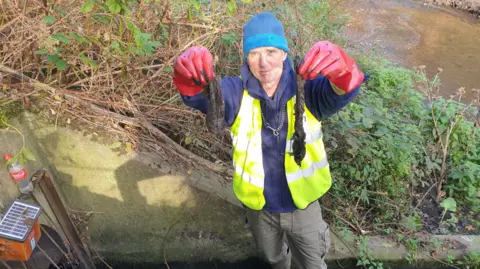 CURB
CURB
Ben Morris called it "a catastrophic failure of regulation"
Areas covered by the discharges include Barnet, Harrow, Ealing and Dollis and Yeading Brooks, with one case dating back to April 2018.
The EIR response did not name the specific blocks or the developers.
Misconnected pipes discharging raw sewage into surface water drains are illegal, under Section 109 of the Water Industry Act 1991.
Ben Morris, founder of the Clean Up the River Brent campaign (Curb), said: "It's like going back to the mid-19th Century when there were no water treatment works.
"We've gone back to a time when we're no longer treating our sewage.
"We're just putting it straight in rivers; certainly a proportion of it is no longer being treated at all."
Both Force and Curb said they had reported the situation to the Environment Agency.

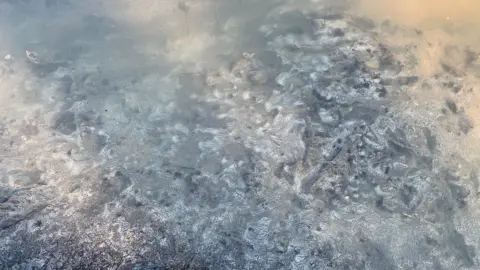 CURB
CURB
Several of London's waterways are severely polluted
Force trustee Rob Gray said this was causing a "hidden pollution scandal" that was having a "public health risk and environmental impact".
He said: "Together, thousands of these inputs across the capital are badly affecting the health of our rivers.
"For London this is probably now a bigger issue than sewage inputs from sewage treatment works.
"In our view this type of pollution is probably the largest source of chronic pollution for London’s rivers."
Thames Water runs a Surface Water Outfall Programme (SWOP) which, it said, aimed to "resolve misconnections into the surface water sewers in hotspot catchments".
But Mr Morris said this was "driven by volunteer reports".
Sewage spills into England's lakes, rivers and seas by water companies more than doubled in 2023.
The number of hours in which sewage was dumped into London's River Thames more than quadrupled last year.
The Royal Academy of Engineering has recently called for an upgrade of the UK's sewage system and more widespread testing of the country's waterways.

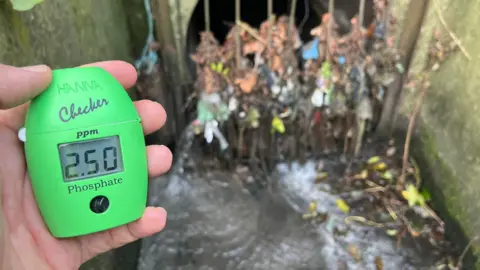 CURB
CURB
The government says a safe phosphate level is 0.1mg per litre but readings are many times higher in some areas
A Thames Water spokesperson said: “Households and buildings which are connected to the wrong drainage pipe can have a serious impact on the environment.
"Most misconnections will have been done entirely by accident but is the responsibility of the property owner, which is why we would urge freeholders or developers fitting new connections to make sure they’re plumbed in properly.
“We have a programme of work to help identify and investigate misconnections and we also fund local projects across our region, which have been a great way to increase awareness of the issue, while involving communities to take stewardship and help manage their local environments.”
An Environment Agency spokesperson said: “Misconnections are a major cause of pollution, especially in urban areas, where the high density of households and associated drainage increases the likelihood of misconnections and therefore the impact on nearby watercourses.
“We encourage anyone who is installing a new toilet, sink, washing machine or dishwasher, to make sure their plumber is connecting them to the wastewater sewer rather than surface water drains."
Harrow and Ealing councils did not respond to Local Democracy Reporting Service requests for comment.
Barnet Council called the situation "unacceptable" and said it was concerned about the impact on residents, biodiversity, and the local environment.
However, it also criticised the "fragmented legislation" that it said allowed it to happen.
Its spokesperson said: “New property developments are required to submit detailed plans for the proper management of sewage to prevent such pollution.
"However, many adaptations and conversions of existing properties take place without proper consideration and can result in these misconnections.
"We are doing all that we can to raise awareness about this issue, including issuing advice to residents setting out how they can help by checking the water flow connections in their homes.”
Additional reporting by Grant WIlliams, Local Democracy Reporting Service.

 1 month ago
15
1 month ago
15



